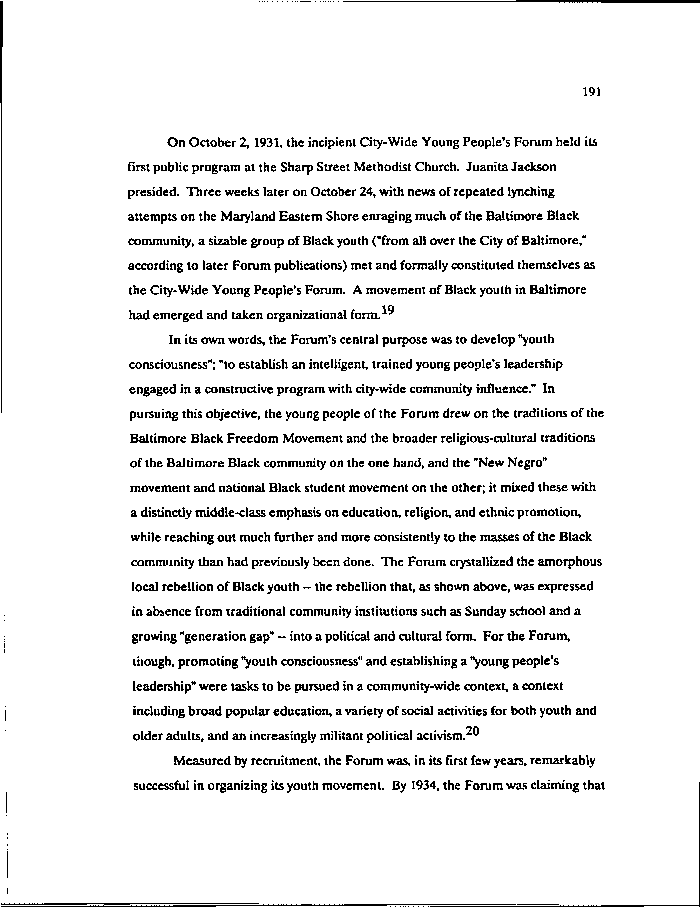|
191
On October 2,1931, the incipient City-Wide Young People's Forum held its
first public program at the Sharp Street Methodist Church. Juanita Jackson
presided. Three weeks later on October 24, with news of repeated lynching
attempts on the Maryland Eastern Shore enraging much of the Baltimore Black
community, a sizable group of Black youth ("from all over the City of Baltimore,"
according to later Forum publications) met and formally constituted themselves as
the City-Wide Young People's Forum. A movement of Black youth in Baltimore
had emerged and taken organizational form. ^
In its own words, the Forum's central purpose was to develop "youth
consciousness"; "to establish an intelligent, trained young people's leadership
engaged in a constructive program with city-wide community influence." In
pursuing this objective, the young people of the Forum drew on the traditions of the
Baltimore Black Freedom Movement and the broader religious-cultural traditions
of the Baltimore Black community on the one hand, and the "New Negro"
movement and national Black student movement on the other; it mixed these with
a distinctly middle-class emphasis on education, religion, and ethnic promotion,
while reaching out much further and more consistently to the masses of the Black
community than had previously been done. The Forum crystallized the amorphous
local rebellion of Black youth - the rebellion that, as shown above, was expressed
in absence from traditional community institutions such as Sunday school and a
growing "generation gap" — into a political and cultural form. For the Forum,
though, promoting "youth consciousness" and establishing a "young people's
leadership" were tasks to be pursued in a community-wide context, a context
including broad popular education, a variety of social activities for both youth and
older adults, and an increasingly militant political activism. "
Measured by recruitment, the Forum was, in its first few years, remarkably
successful in organizing its youth movement. By 1934, the Forum was claiming that
|

